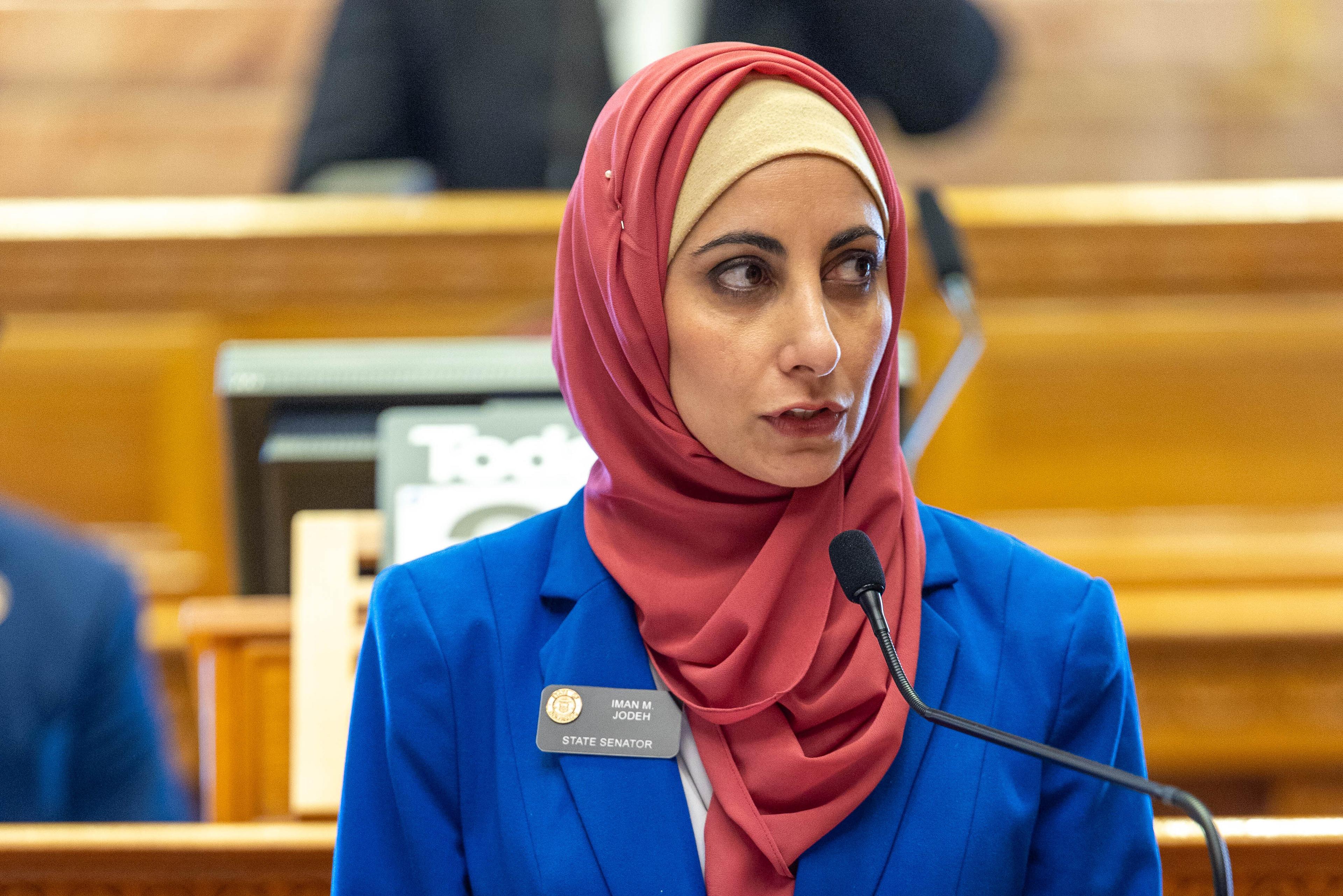
Democratic Rep. Yadira Caraveo said she gave the Republicans' sweeping energy bill a lot of thought before deciding how she’d vote. The freshman lawmaker kept one key thought in mind: “what is in the best interest of my district.”
The 8th Congressional District has both reaped the economic rewards of oil and natural gas development and suffered the negative environmental and health consequences stemming from the industry. Caraveo thought about the tens of thousands of her constituents the industry employs. But the pediatrician also remembered the kids she would see at the clinic on hazy days who had trouble breathing and faced a trip to the hospital.
The Lower Energy Costs Act boosts fossil fuel production while rolling back past provisions aimed at combating climate change.
“This bill just has too many things where it doesn’t meet the mark,” she told CPR News ahead of the vote. “It takes steps backwards on our climate goals. It expands drilling on public lands, and so there are too many things that it detracts from to merit a yes vote on it.”
She voted no.
In the end, the House passed the bill 225-204. With four Democrats crossing the aisle to support it and one Republican opposed.
It’s a vote that could come back to haunt Caraveo.
Caraveo won her seat in a tight race. Her district is the state’s one true toss-up. And she knows she has a political target on her back. The Republican-aligned American Action Network launched a more than $157,000 ad campaign earlier this month targeted at Caraveo and other swing district Democrats to urge support for the GOP bill. It was the second ad from the group targeting her in as many months.
Ads like that may not shift any congressional votes, but they can help shape voters’ opinions on a policy, leaving them unhappy if their representative chooses a different course.
The GOP House campaign arm released a statement blasting Caraveo shortly after the vote. “Yadira Caraveo chose the extreme left again,” said National Republican Congressional Committee spokeswoman Delanie Bomar.
Still, Caraveo said the electoral politics of the vote didn’t weigh in on her decision. Instead, she asked herself, “is it something that reflects the constituents of what is a tight district?”
In the end, she felt the bill leaned too heavily in one direction.
What frustrated Caraveo is that she said tried to make a “good faith effort” to improve the bill through the amendment process. She offered an amendment that would increase efforts to plug and remediate orphan wells. Republicans didn’t allow it on the floor. She even supported some Republican amendments, including one from fellow Coloradan Rep. Lauren Boebert to shorten judicial review for infrastructure projects, over the course of the debate.
“I’ve really tried to provide balance with my own amendment, by really looking at individual amendments closely. But at the end of the day, there’s too many provisions that remain in the bill that don’t align with the interests of Colorado families,” Caraveo said.
Robust debate in the House
The House spent most of the week debating the bill.
The chamber’s Republicans argued their bill would unleash American energy and lower costs for families.
“We're going to show the country how we can actually become energy independent, how we can lower costs for families,” said bill sponsor Majority Leader Steve Scalise. “There's no reason we should be getting energy from foreign countries when we can make it here cleaner, more efficient, and at a dramatically lower cost than anywhere else in the world. This bill achieves that.”
The Lower Energy Costs Act would support exploration and development of energy sources and would reduce royalties for oil and gas development on federal lands. It also seeks to expedite the permitting process by waiving some environmental review requirements.
To the chagrin of many Democrats, it also rolls back provisions from their signature climate, health care and tax and bill last year, which led to the nation’s largest investment ever to combat climate change.
“No one produces better, safer, cleaner energy than us right here in the United States of America,” said Boebert, who serves on the House Natural Resources Committee and whose husband works as an energy consultant. “It's past time House Democrats start to have a little empathy and dismount their moral high horse of climate change.”
Boebert’s American Energy Act, which would limit litigation and expand the length of drilling permits, was included in the GOP energy bill.
GOP Rep. Doug Lamborn, vice chair of the House Natural Resources Committee, also took to the floor to criticize previous investments in green energy, saying it has not helped lower costs for Americans.
“Maintaining affordable energy is crucial to our way of life. It is what keeps water treatment plants open. It's what keeps hospitals open. It's what keeps traffic lights, libraries, schools, trucks, ships, and airplanes operating. When the cost of powering these essential processes go up, costs go up,” he said.
Democrats fired back. They labeled the GOP bill the “Polluters Over People” Act, arguing it would rollback protections on water and air, not lower energy costs, and increase the debt.
Democratic Rep. Joe Neguse, also on the House Natural Resources Committee, pointed out that the bill could grant waivers to any refinery in the country. “That enables any party… to violate any environmental law and have blanket immunity. The Clean Water Act, the Clean Air Act, NEPA, you name it, they’ll waive it. That is not a bill that puts people first. It’s a bill that puts polluters first,” he said.
More importantly, said Democratic Rep. Diana DeGette, who serves on the Energy and Commerce committee, the bill will not lower energy costs.
“Here’s why,” she explained on the House floor, “by opening LNG exports and doubling down on fossil fuels, this legislation will further increase our reliance on global oil and gas markets. It will further subject us to the volatility of the global marketplace. And frankly, it will do nothing to increase our security here at home because we simply can’t drill our way towards lower energy costs.”
DeGette added she is “willing, ready and able to work on a bipartisan solution.”
For Caraveo, who said she wants to prioritize the future of energy production, she thinks permitting reform is the likely avenue “because it won't just help oil and gas companies. It’s really going to lead to security for the jobs that are important in the industry, and in Colorado it’s going to allow them to operate safely and effectively” to develop oil and gas, renewable energy and even infrastructure.
Next steps for the bill in the US Senate
Senate Majority Leader Chuck Schumer, who said the House GOP bill is going nowhere in his chamber, also left the door open for “a bipartisan, bicameral approach” to an energy package, specifically mentioning permitting reform.
“Everyone knows there’s going to have to be give on both sides to get it done, and we on our side will continue working in good faith on real permitting reform talks. But House Republicans’ H.R. 1 is, very simply put, a non-starter,” Schumer said on the Senate floor.
Still, House Speaker Kevin McCarthy, Scalise and others aren’t giving up hope on their bill. They said they’ll make their case to the American people in the hope that they can convince the Senate to take it up. They’ll have the upcoming two-week recess to begin to make that case to constituents.
But for now, the GOP’s top priority remains essentially a messaging bill, one that can be used as a cudgel against swing district candidates on both sides of the aisle.








